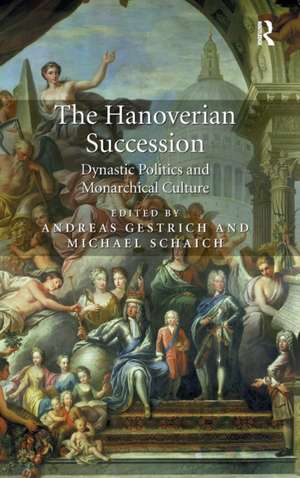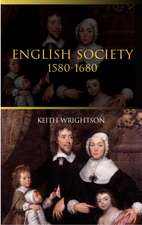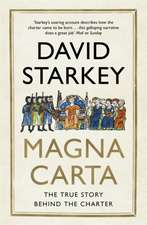The Hanoverian Succession: Dynastic Politics and Monarchical Culture
Autor Andreas Gestrich, Michael Schaichen Limba Engleză Hardback – 18 mar 2016
| Toate formatele și edițiile | Preț | Express |
|---|---|---|
| Paperback (1) | 312.54 lei 22-36 zile | +26.78 lei 6-12 zile |
| Taylor & Francis – 14 oct 2024 | 312.54 lei 22-36 zile | +26.78 lei 6-12 zile |
| Hardback (1) | 937.50 lei 43-57 zile | |
| Taylor & Francis – 18 mar 2016 | 937.50 lei 43-57 zile |
Preț: 937.50 lei
Preț vechi: 1030.23 lei
-9% Nou
Puncte Express: 1406
Preț estimativ în valută:
179.41€ • 186.17$ • 149.96£
179.41€ • 186.17$ • 149.96£
Carte tipărită la comandă
Livrare economică 17-31 martie
Preluare comenzi: 021 569.72.76
Specificații
ISBN-13: 9781472437655
ISBN-10: 1472437659
Pagini: 304
Ilustrații: Includes 6 b&w illustrations
Dimensiuni: 156 x 234 x 19 mm
Greutate: 0.72 kg
Ediția:Revised
Editura: Taylor & Francis
Colecția Routledge
Locul publicării:Oxford, United Kingdom
ISBN-10: 1472437659
Pagini: 304
Ilustrații: Includes 6 b&w illustrations
Dimensiuni: 156 x 234 x 19 mm
Greutate: 0.72 kg
Ediția:Revised
Editura: Taylor & Francis
Colecția Routledge
Locul publicării:Oxford, United Kingdom
Cuprins
Introduction, Michael Schaich. Part I Dynastic Legacies: The Hanoverian monarchy and the legacy of late Stuart kingship, Ronald G. Asch; The House of Brunswick-Lüneburg and the Holy Roman Empire: the making of a patriotic dynasty, 1648-1714?, Martin Wrede. Part II Representing Protestantism: George I, the Hanoverian succession, and religious dissent, David Wykes; Hanover-Britain and the Protestant cause, 1714-1760, Andrew C. Thompson; The Hanoverians and the colonial churches, Jeremy Gregory. Part III Image Policies: The Hanoverian monarchy and the culture of representation, Tim Blanning; ‘Every inch not a king’: the bodies of the (first two) Hanoverians, Robert Bucholz; Monarchy, affection and empire: the Hanoverian dynasty in 18th-century America, Brendan McConville; Visions of kingship in Britain under George III and George IV, G.M. Ditchfield. Part IV Contested Loyalties: The Hanoverian succession and the politicisation of the British army, Hannah Smith; Jacobitism and the Hanoverian monarchy, Gabriel Glickman; The alternative to the House of Hanover: The Stuarts in exile, 1714-1745, Edward Corp; Radical popular attitudes to the monarchy in Britain during the French Revolution, Amanda Goodrich. Index.
Notă biografică
Andreas Gestrich is Director of the German Historical Institute London. His present research interests comprise the history of family, childhood and youth, the history of poverty and poor relief, media history and the social history of religious groups. His publications include, among others, Absolutismus und Öffentlichkeit: Politische Kommunikation in Deutschland zu Beginn des 18. Jahrhunderts (1994), Familie im 19. und 20. Jahrhundert (1999) and (ed. with Christiane Eisenberg) Cultural Industries in Britain and Germany: Sport, Music and Entertainment from the Eighteenth to the Twentieth Century (2012). Michael Schaich is Deputy Director of the German Historical Institute London. His current research focuses on the symbolic representation of the British monarchy and state during the seventeenth and eighteenth centuries. His publications include Staat und Öffentlichkeit im Kurfürstentum Bayern der Spätaufklärung (2001), (ed.) Monarchy and Religion: The Transformation of Royal Culture in Eighteenth-Century Europe (2007) and (ed. with R.J.W. Evans and Peter H. Wilson) The Holy Roman Empire, 1495-1806 (2011).
Descriere
Three hundred years after the succession of the first Hanoverian king, this volume provides an intriguing perspective of a dynasty, challenging assumptions of the Hanoverians as petty-minded monarchs presiding over an inconsequential court. Looking afresh at the Georgian monarchs and their role, influence and legacy within Britain, Hanover and beyond, the chapters shine new light on important topics: from rivalling concepts of monarchical legitimacy and court culture to the multi-confessional set-up of the British composite monarchy and the role of the military, the Anglican Church and the aristocracy in defining and challenging the political order.









